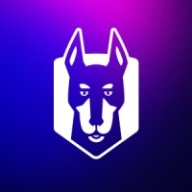

Snyk and CloudBees both thrive in their respective categories, with Snyk focusing on security and CloudBees on CI/CD automation. Snyk, with its uncomplicated integration and comprehensive database, has an edge in ease of use and simplicity, while CloudBees leads in scalability and complex automation.
Features: Snyk offers seamless integration with multiple environments, a comprehensive vulnerability database, and precise notification systems. CloudBees features robust scalability for complex pipelines, extensive integrations, and advanced application delivery automation, excelling in auditing and visualization for large-scale operations.
Room for Improvement: Snyk should expand language support, improve static analysis, and enhance licensing compliance tracking. Better integration with enterprise tools and refined notifications could enhance the user experience. CloudBees could optimize plugin management and ease of use, especially for non-technical users, and improve deployability for extensive systems.
Ease of Deployment and Customer Service: Snyk is flexible in cloud and hybrid environments, with strong developer communication and technical support. CloudBees offers reliable support but requires tight vendor coordination for plugin updates and infrastructure management, excelling in private and public cloud settings but requiring operational attentiveness.
Pricing and ROI: Snyk's pricing reflects its comprehensive features, offering high ROI by mitigating vulnerabilities early, significantly cutting remediation costs. CloudBees, though pricier, justifies costs through automation, leading to long-term productivity and efficiency gains.
I can see that Snyk saves the costs of hiring security developers for vulnerability scanning and security checks, as that responsibility is now managed by Snyk.
Our long-standing association has ensured smooth communication, resulting in favorable support experiences and satisfactory issue resolution.
Their response time aligns with their SLA commitments.
We could understand the implementation of the product and other features without the need for human interaction.
Snyk allows for scaling across large organizations, accommodating tens of thousands of applications and over 60,000 repositories.
Snyk is very scalable and can handle my organization's growth and changing needs.
It lacks the ability to select branches on its Web UI, forcing users to rely on CLI or CI/CD for that functionality.
The inclusion of AI to remove false positives would be beneficial.
As we are moving toward GenAI, we expect Snyk to leverage AI features to improve code scanning findings.
Snyk is recognized as the cheapest option we have evaluated.
After negotiations, we received a special package with a good price point.
Snyk is less expensive.
Our integration of Snyk into GitHub allows us to automatically scan codebases and identify issues, which has improved efficiency.
Snyk helps detect vulnerabilities before code moves to production, allowing for integration with DevOps and providing a shift-left advantage by identifying and fixing bugs before deployment.
Snyk has positively impacted my organization by improving the security posture across all software repositories, resulting in fewer critical vulnerabilities, more confidence in overall product security, and faster security compliance for project clients.
| Product | Market Share (%) |
|---|---|
| Snyk | 18.6% |
| CloudBees | 2.7% |
| Other | 78.7% |


| Company Size | Count |
|---|---|
| Small Business | 1 |
| Midsize Enterprise | 3 |
| Large Enterprise | 17 |
| Company Size | Count |
|---|---|
| Small Business | 21 |
| Midsize Enterprise | 9 |
| Large Enterprise | 21 |
CloudBees provides a highly scalable and secure platform that supports seamless integration and automation across multiple environments. It excels in managing Jenkins instances and offers flexible deployment options, enhancing efficiency for large teams.
CloudBees is recognized for its integration with Jenkins, SonarQube, and Ansible, allowing companies to leverage its robust automation capabilities for continuous integration and deployment. With its strong support for Docker and Kubernetes, teams benefit from streamlined code management and operational efficiency. Its scalable architecture, real-time feedback, and premium vendor support help manage large-scale applications and microservices. Despite its strengths, users report challenges with pipeline setup, service availability, and GUI accessibility, which suggest room for improvement in these areas.
What are the key features of CloudBees?
What benefits should users expect in reviews?
In tech and software industries, companies implement CloudBees for managing complex CI/CD pipelines. Its integration with DevOps tools facilitates automation and workflow optimization. Industries with large teams managing thousands of microservices use CloudBees to maintain high availability, streamline processes, and ensure security compliance, driving efficient production workflows.
Snyk excels in integrating security within the development lifecycle, providing teams with an AI Trust Platform that combines speed with security efficiency, ensuring robust AI application development.
Snyk empowers developers with AI-ready engines offering broad coverage, accuracy, and speed essential for modern development. With AI-powered visibility and security, Snyk allows proactive threat prevention and swift threat remediation. The platform supports shifts toward LLM engineering and AI code analysis, enhancing security and development productivity. Snyk collaborates with GenAI coding assistants for improved productivity and AI application threat management. Platform extensibility supports evolving standards with API access and native integrations, ensuring comprehensive and seamless security embedding in development tools.
What are Snyk's standout features?Industries leverage Snyk for security in CI/CD pipelines by automating checks for dependency vulnerabilities and managing open-source licenses. Its Docker and Kubernetes scanning capabilities enhance container security, supporting a proactive security approach. Integrations with platforms like GitHub and Azure DevOps optimize implementation across diverse software environments.
We monitor all DevSecOps reviews to prevent fraudulent reviews and keep review quality high. We do not post reviews by company employees or direct competitors. We validate each review for authenticity via cross-reference with LinkedIn, and personal follow-up with the reviewer when necessary.